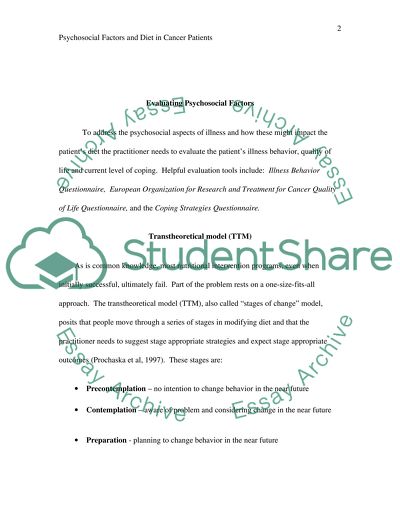Cite this document
(“Psychosocial Factors in Dietary Change in Cancer Patients Essay”, n.d.)
Psychosocial Factors in Dietary Change in Cancer Patients Essay. Retrieved from https://studentshare.org/health-sciences-medicine/1540418-psychosocial-aspects-of-health
Psychosocial Factors in Dietary Change in Cancer Patients Essay. Retrieved from https://studentshare.org/health-sciences-medicine/1540418-psychosocial-aspects-of-health
(Psychosocial Factors in Dietary Change in Cancer Patients Essay)
Psychosocial Factors in Dietary Change in Cancer Patients Essay. https://studentshare.org/health-sciences-medicine/1540418-psychosocial-aspects-of-health.
Psychosocial Factors in Dietary Change in Cancer Patients Essay. https://studentshare.org/health-sciences-medicine/1540418-psychosocial-aspects-of-health.
“Psychosocial Factors in Dietary Change in Cancer Patients Essay”, n.d. https://studentshare.org/health-sciences-medicine/1540418-psychosocial-aspects-of-health.


